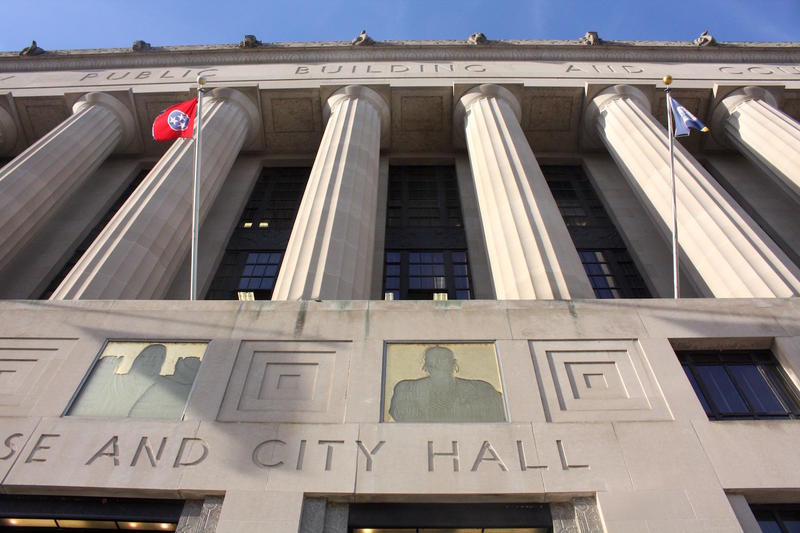
Metro Nashville is likely spending too much on firefighter and police overtime. And the city is failing to collect enough money from fees and permits, especially for short-term rentals.
Those are among a couple dozen findings from the “Blue Ribbon Commission,” which asked officials and local business leaders to spend the past four months hunting for better ways to run Metro government.
The group’s report, reviewed by WPLN, is scheduled for final adoption Tuesday.
The commission was
born out of last year’s political handwringing about a budget shortfall. Its mission was to step outside of the political fray and find $20 million in savings.
That exact number isn’t in the final report, but commissioners deliver a raft of ideas.
“Most of these recommendations don’t need a ton of political will. They require a discipline to conduct studies, to use data, to examine the efficacy of different programs,” said Emily Evans, chairwoman of the Blue Ribbon Commission and a former councilwoman. “If you do those things, decisions will present themselves pretty easily and pretty efficiently.”
Broadly, the report says Metro can be more diligent about routine check-ins on spending.
That means reviewing and updating city fees and fines every few years. The commission found that some hadn’t adjusted in more than a decade, despite all the change in Nashville.
It also means using data to align spending with needs.
“We really have been behind the curve versus a lot of other cities in using data from
our 3-1-1 system to know how to properly allocate resources,” Evans said.
The recommendations fall into several categories. Some suggest how Metro could generate more money — such as more aggressively collecting unpaid taxes from short-term rentals, as well as raising the rental permit fee, which has been discussed recently.
Other ideas are marked as “cost avoidance,” such as:
- possibly hiring more firefighters or creating a police comp day system to cut down on overtime
- offering lump sum pension payments to qualified retirees
- reducing the amount of time wasted by police officers waiting in courtrooms for cases, perhaps by billing the courts for inefficient scheduling
- trimming Metro real estate and facility maintenance costs
There are also ideas for shifting how Metro functions: like spending less money mowing the grass on city properties, reducing the amount of paper and printing, and allowing more employees to work remotely (potentially allowing Metro to maintain less office space in the long run).
One of the broadest recommendations has to do with the property tax and Metro employee pay. The Blue Ribbon Commission says the tax levy should be adjusted alongside the property reassessment every four years, which used to be routine, and that Metro should also be creating multi-year pay plans for employees.
The commission says without that four-year cycle, uncertainty and political fighting can spring up every year.
“This departure has created a certain amount of annual budgetary controversy that can be avoided,” the report states.
In the commission’s first year, it’s unclear how its recommendations will be received. And there’s no timeline for departments to enact the suggestions.
But members of the commission, including Vice Mayor Jim Shulman, says the report will be presented to the mayor, the Metro Council and department leaders. He says it also fits with an ongoing effort to have more council members evaluating budgetary matters throughout the year, instead of in a two-month frenzy leading up to June.
“I don’t want this to go on a shelf. I want it to be a living, breathing document that people can utilize, and that people think through it,” Shulman said.
Next up: the commission will sift through numerous public suggestions it has received for streamlining Metro, which were largely set aside as the group rushed to turnaround its first batch of ideas.


